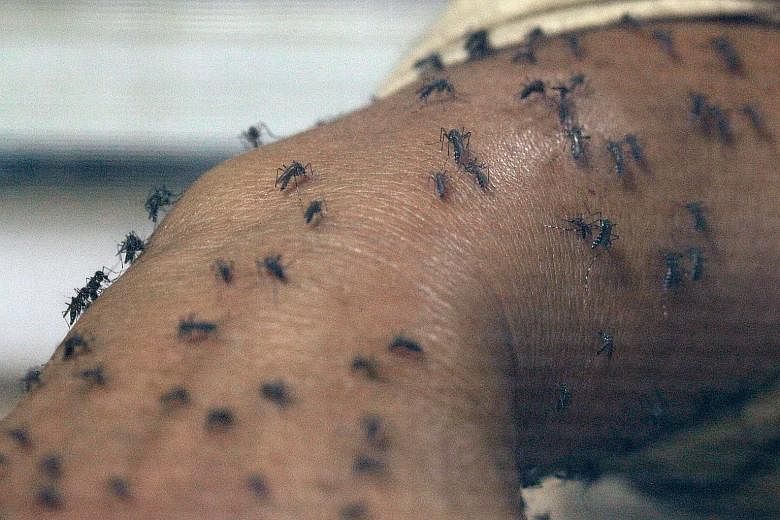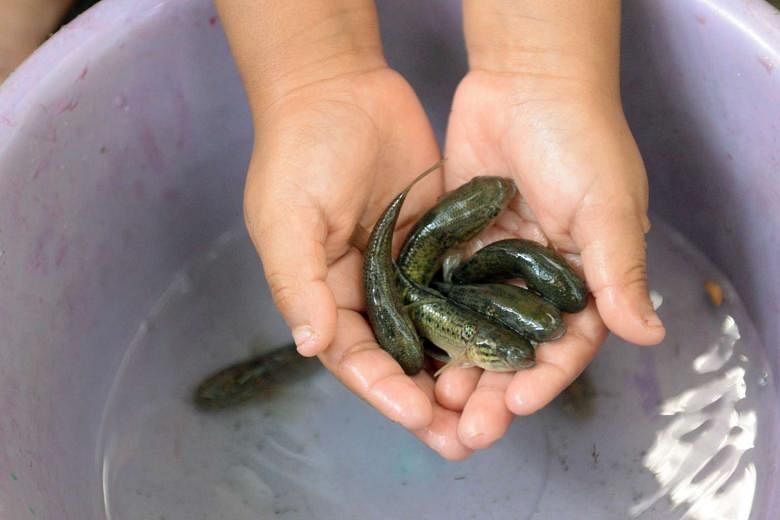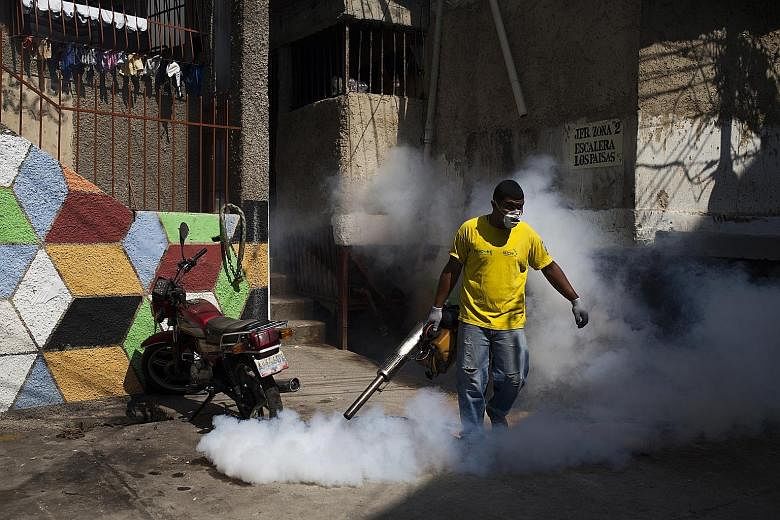GENEVA • Brazilian government health institute Fiocruz said it had discovered for the first time the Zika virus in saliva and urine samples and would investigate the possible transmission of the virus through bodily fluids.
Fiocruz made the discovery after analysing samples from two patients, Dr Paulo Gadelha, president of the Oswaldo Cruz Foundation, as Fiocruz is formally known, told reporters in Rio de Janeiro.
The discovery comes as the World Health Organisation advised countries against accepting blood donations from people who have travelled to regions affected by the Zika virus. In Spain, Europe's first known case of the disease was discovered in a pregnant woman.
With cases emerging in Europe and North America from travellers returning from affected areas, WHO stressed the potential link between Zika and microcephaly - which causes babies to be born with abnormally small heads - and urged health authorities to take precautions.
"With the risk of incidence of new infections of Zika virus in many countries, and the potential linkage of the Zika virus infection with microcephaly and other clinical consequence, it is estimated as an appropriate precautionary measure to defer (blood) donors who return from areas with Zika virus outbreak," WHO spokesman Tarik Jasarevic said.
Meanwhile, in the first case of its kind in Europe, Spain's Health Ministry said a pregnant woman who had returned from Colombia had been diagnosed with the virus.
"One of the patients diagnosed in Catalonia is a pregnant woman, who showed symptoms after having travelled to Colombia," the ministry announced, adding that she was one of seven cases in Spain.
The 41-year-old woman, of Latin American origin who lives in Spain, is 13 or 14 weeks pregnant, regional health official Joan Guix told a news conference.
She will undergo medical tests to see if there is a risk to the foetus. Mr Guix said there was only a small possibility of problems and a scan at 15 weeks would show whether the baby was developing normally.
The virus has so far spread to 26 countries in South and Central America and the Caribbean, and authorities have warned it could infect up to four million people on the continent and spread worldwide.
The disease starts with a mosquito bite and normally causes little more than a fever and rash.
But since October, Brazil has reported 404 confirmed cases of microcephaly - up from 147 in 2014 - plus 3,670 suspected cases. The timing has fuelled strong suspicions that Zika is causing the birth defect. The virus has also been linked to a potentially paralysing nerve disorder called Guillain-Barre syndrome.
Spain's Health Ministry sought to ease concerns over the spread of the virus, pointing out that all seven cases in the country had caught the disease abroad.
South American health ministers on Thursday held an emergency meeting in Uruguay. It focused on ways to control the mosquito population spreading the virus, though reports of a US patient catching the disease by having sex fuelled fears that it will not be easy to contain.
WHO earlier this week declared the spike in serious birth defects an international emergency and launched a global Zika response unit. Colombia, Ecuador, El Salvador, Jamaica and the US territory of Puerto Rico have all warned women not to get pregnant.
The WHO warning on blood donations follows moves by Canada and Britain to protect their blood supplies. Canadian agencies on Wednesday announced that people who had travelled to a Zika-risk area would be ineligible to give blood for three weeks upon their return.
In Britain, the National Health Service Blood and Transplant agency has said that from Thursday, anyone returning from Zika-affected countries would be made to wait 28 days before being allowed to donate blood.
AGENCE FRANCE-PRESSE




